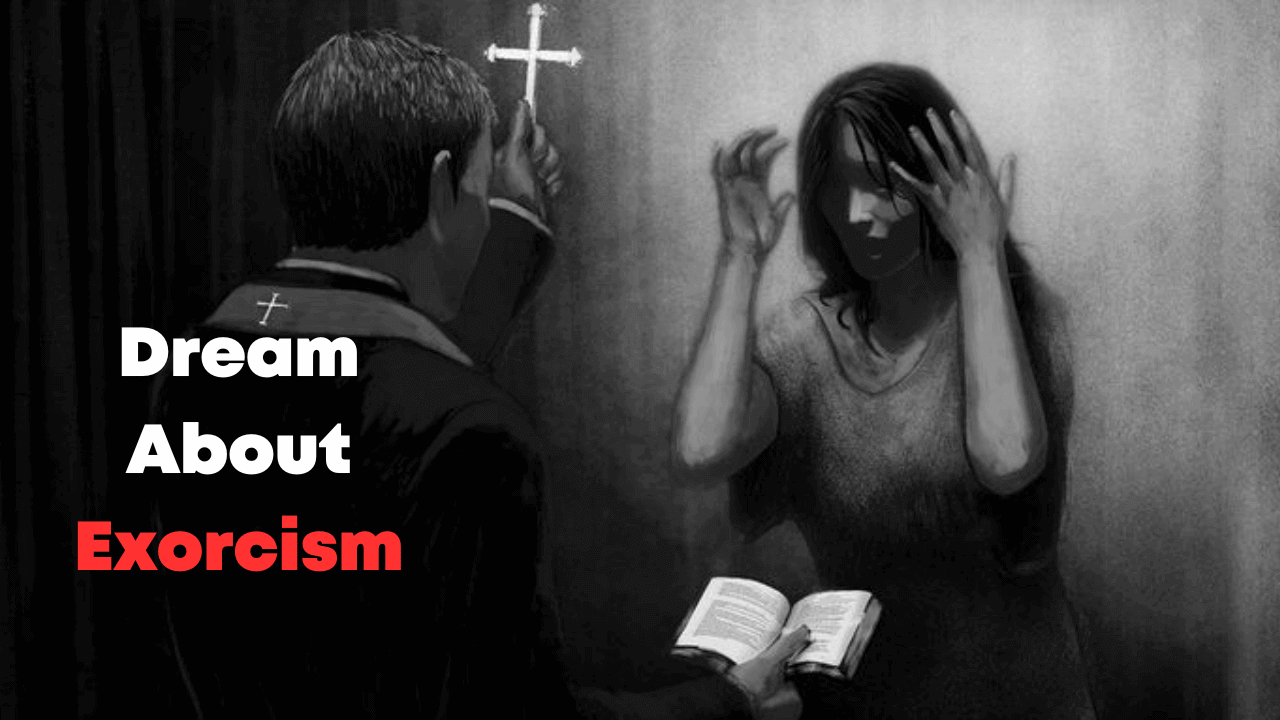Dream About Exorcism about exorcism can be deeply unsettling, evoking imagery of possession and spiritual warfare. Yet, these dreams often have profound meanings, revealing insights into our emotional and psychological states. This article explores the complex symbolism of exorcism in dreams from multiple perspectives, including psychological, cultural, and religious angles, providing a multifaceted understanding of what these intense experiences might signify.
Understanding the Meaning of Such Dreams
Dreams about exorcism often symbolize the dreamer’s need to confront and expel negative influences from their life. These influences can be external, such as toxic relationships or harmful environments, or internal, like destructive behaviors or suppressed emotions. The act of exorcism in a dream might represent a powerful urge to cleanse or purify oneself, a psychological reboot of sorts that highlights the struggles with personal demons or conflicts.
Common Interpretations of Exorcism Dreams
- Purging Negativity: The most straightforward interpretation is the purging of negativity. This could relate to letting go of bad habits, overcoming addictions, or distancing oneself from negative influences.
- Conflict Resolution: Dreams of exorcism sometimes reflect a conflict between known and unknown aspects of oneself, indicating a deep psychological battle and the desire to resolve internal conflicts.
- Seeking Liberation: They may also symbolize a quest for spiritual or emotional liberation, pointing to a need for freedom from past traumas or restrictive beliefs.
Interpreting Dream About Exorcism
Interpreting a dream about exorcism requires considering the context of the dream and the emotions felt during the experience. These dreams can vary widely in their scenarios and the feelings they invoke.
Scenarios and Interpretations
- Exorcising a Known Person: If you are exorcising someone you know, it might suggest that your relationship with this person is being deeply scrutinized. It could imply a need to help this person or to distance yourself from their negative traits.
- Being Exorcised: If you are the one being exorcised, it could reflect feelings of guilt, shame, or unworthiness. There might be an aspect of yourself that you find unacceptable or difficult to integrate with your conscious self.
- Witnessing an Exorcism: Observing an exorcism in a dream might indicate that you are feeling powerless about someone else’s negative situation, or it might suggest a detachment from the emotional or chaotic situations around you.
Why Do People Experience Dreams About Exorcism?
Dreams about exorcism can emerge from various sources:
- Psychological Strain: High stress, anxiety, or traumatic experiences can trigger these dreams as the mind tries to process and make sense of these intense emotions.
- Emotional Cleansing: They may occur during periods of significant change or emotional cleansing, where the subconscious mind acts out the desire to purge the old and embrace the new.
- Physiological Triggers: Illness or fever can also induce more vivid and intense dreams, including themes of exorcism.
Spiritual Interpretation of Dream About Exorcism
Spiritually, dreaming of exorcism often reflects a journey towards self-realization and the purification of the soul. It may indicate that the dreamer is undergoing a spiritual awakening or experiencing a reconnection with their core values and beliefs. This type of dream encourages a reflection on life’s purpose and the shedding of spiritual burdens that hinder personal growth.
Biblical Interpretation of Dream About Exorcism
In a biblical context, dreams about exorcism might connect to themes of redemption and the battle between good and evil. Such dreams could be interpreted as a divine message to strengthen one’s faith or moral resolve, suggesting a spiritual conflict that requires resolution. They might also symbolize deliverance from sin or the influence of evil, reflecting the biblical narratives of Christ casting out demons as a sign of ultimate authority and protection.
Religious Interpretations of Dream About Exorcism
Dreams of exorcism are not exclusive to any one faith, reflecting deep-rooted beliefs about spiritual warfare and inner turmoil across various religions.
Islamic Interpretation
In Islam, dreams about exorcism might be interpreted as a manifestation of one’s struggle against nafs (the self) or the whisperings of Shaitan (the devil). Such dreams could be seen as symbolic of the dreamer’s efforts to purify their soul from sin and to adhere more closely to Islamic teachings. A successful exorcism in a dream could indicate spiritual growth and victory over personal temptations.
Hindu Interpretation
In Hinduism, dreams of exorcism might connect with the concept of internal and external evils. Such dreams could be interpreted as the battle against asuras (demons), representing personal or ancestral karmas that need to be resolved. These dreams encourage the pursuit of dharma (righteous living) and the importance of spiritual cleansing through rituals and prayers.
Buddhist Interpretation
Buddhism might view an exorcism dream as a metaphor for the battle against Mara, the demon that represents delusion and attachment. Such dreams are seen as a sign to deepen one’s meditation practice, emphasizing the liberation from samsara—the cycle of death and rebirth influenced by karma.
Cultural Interpretations of Dream About Exorcism
Cultural contexts also shape how dreams about exorcism are perceived, reflecting broader societal beliefs about the supernatural and the psyche.
Native American Interpretation
Among many Native American tribes, dreams about exorcism could be viewed as a visitation by spirit guides or ancestors who are trying to restore balance and harmony to the dreamer’s spirit. These dreams might call for a cleansing ritual or a spiritual journey to realign with the natural world.
African Interpretation
In many African cultures, dreams of exorcism often involve community rituals, reflecting the belief in the power of ancestors and spirits. These dreams might be seen as a sign that the community needs to come together to heal an individual from spiritual afflictions, often through dance, music, and communal prayer.
Japanese Interpretation
In Japan, where Shinto and Buddhist beliefs often intertwine, a dream of exorcism might indicate the need to cleanse oneself from kegare (pollution or impurity). Such dreams could lead to participating in purification rituals at a shrine, emphasizing the restoration of spiritual cleanliness.
What Psychology Says About Dream About Exorcism
From a psychological standpoint, dreams about exorcism can be analyzed through the lens of Jungian theory, which interprets these dreams as manifestations of confronting the shadow self—parts of our psyche that we reject or ignore. Researchers suggest that such dreams might occur during times of psychological conflict or when one is attempting to reject negative aspects of their personality or experience.
How to Avoid Dream About Exorcism
To minimize or prevent dreams about exorcism, consider the following strategies:
- Mindfulness and Meditation: Regular practice can help manage stress and anxiety, which may reduce the occurrence of nightmares.
- Emotional Regulation: Developing healthy coping mechanisms for emotional distress can diminish the intensity and frequency of distressing dreams.
- Seek Professional Help: If dreams about exorcism are frequent and disturbing, consulting with a mental health professional can provide strategies to address underlying issues.
Conclusion
Dreams about exorcism span a wide array of interpretations, each offering unique insights into our inner lives. Whether viewed through the lenses of religion, culture, or psychology, these dreams encourage us to confront and cleanse ourselves of the negative influences that affect our spiritual and emotional well-being. For those frequently experiencing such dreams, reflecting on their personal beliefs and possibly seeking professional advice can be beneficial in understanding and addressing the root causes of these profound dream experiences.

